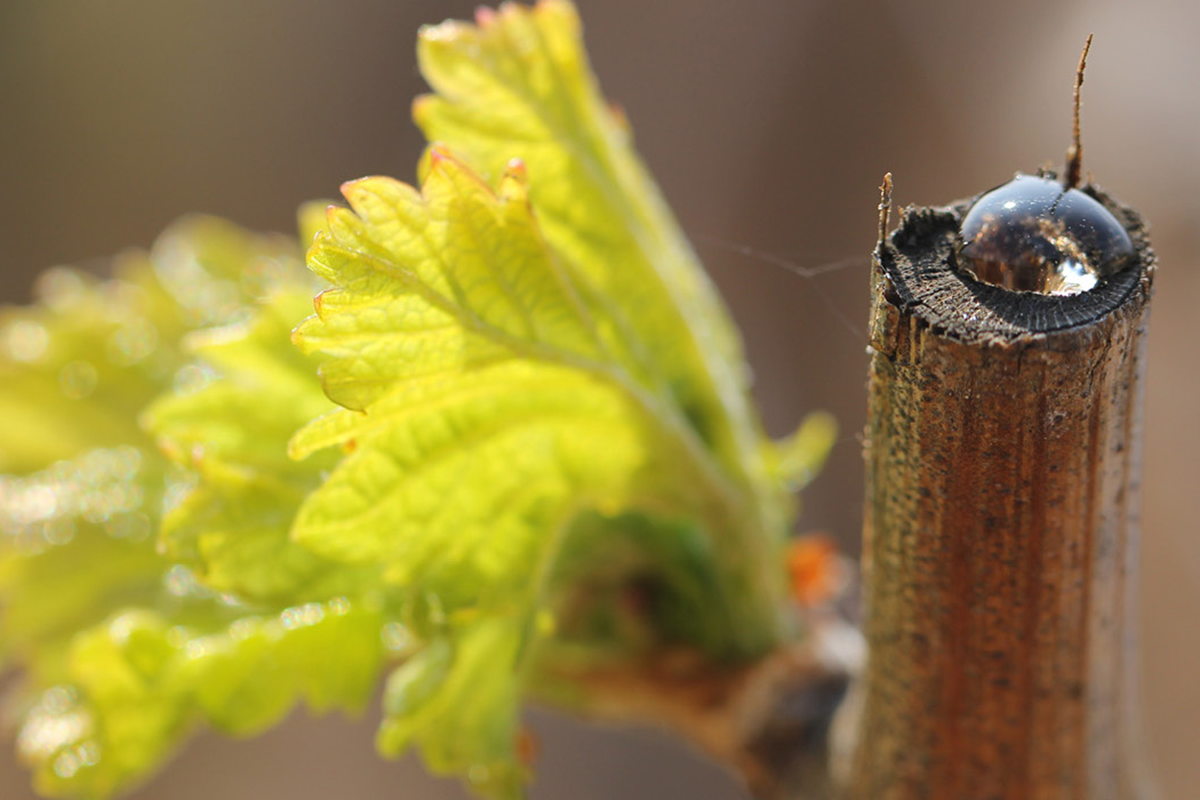Preparing today for tomorrow's vineyards
With the Vinid'Occ key challenge, the Occitanie region is supporting varietal innovation for the future of viticulture and oenology in the region. Patrice This, a researcher at the Agap Institute laboratory and scientific leader of this project, gives us details of this fundamental research of international significance on vines and wine, from the gene to the bottle and to consumers.
With 265,000 hectares of vineyards—34% of France's total—the Occitan wine region is the largest in France. This leading position makes the region a stronghold of viticulture and oenology. These are promising areas for the region's future, which it has chosen to support through the Vinid'Occ key challenge.
Key challenges are an initiative of the Occitanie region, whose goal is to identify and structure the scientific community and local economic players around strategic themes for the region. "These are excellent tools for supporting high-quality academic research with international reach in areas that are strategic for the region, for encouraging collective dynamics among research stakeholders in Occitanie, but also for developing projects with the private sector, associations, and industry, and making scientific knowledge accessible to as many people as possible," emphasizes Philippe Augé, President of the University of Montpellier.
Following Rivoc and BiovidOc, which aim to advance regional research to better preserve biodiversity and combat vector-borne diseases, the region is now turning to Vinid’Oc to support varietal innovation in Occitanie.
Fewer pesticides
"The project focuses on two major issues: reducing the use of plant protection products and adapting to climate change," explains Patrice This, a researcher at the Agap Institute laboratory and project leader. This is because vines are one of the crops that consume the most plant protection products, particularly to combat the most widespread fungal diseases, namely mildew and powdery mildew. "Varietal selection makes it possible to limit the use of fungicides by selecting varieties that are resistant to disease. Vitis vinifera, a species that accounts for around 98% of wine production, does not naturally carry genes that are resistant to these diseases, so these genes must be transferred from other vine species to make it resistant in turn," explains Patrice This. Four new varieties developed using this technology have already been added to the French variety catalog. "These new varieties reduce the need for phytosanitary treatments against mildew and powdery mildew by 72% to 90%, " emphasizes Patrice This.
Adaptation to climate change
Another major challenge of the project is to mitigate the effects of climate change on vine cultivation. "In the South, climate change is already having a significant impact on wine production, leading to losses in production volume and a decline in quality, " explains the project leader. While drought reduces yields, heat affects the organoleptic qualities of wine. "It increases alcohol levels and reduces acidity, two parameters whose balance is essential for producing high-quality wine."
These climatic upheavals also bring other disruptions: "Significant inter-annual variability, both in terms of temperatures and frost events,"emphasizes Patrice This. This is why researchers are now focusing on what they call the plasticity of vines. "This is its ability to adapt its functioning in response to these climatic variations while maintaining sufficient production. The more plastic a vine is, the better it will be able to cushion these variations."
Preparing for the wines of tomorrow
To find varieties that are better suited to the climate of tomorrow in Occitanie, researchers are looking further south, focusing in particular on varieties that grow in Greece. "We also want to determine whether these varieties can match the characteristics of regional wines, which we can approximate but not reproduce identically."
Faced with these inevitable changes, Vinid’Occ’s key challenge will also be to focus closely on producers and consumers to determine how best to prepare them for the wines of tomorrow. A future that is being prepared today in a sector where anticipation is essential. "From seed to plant, the selection cycle takes around fifteen years." It is a long journey from the laboratory to the bottle, which will be achieved by strengthening ties, both between research and the profession on the one hand, "but also through collaboration between the region's major cities involved in this project," emphasizes its leader.
The Occitanie region is supporting these ambitions with a €2 million budget allocated to this key challenge over four years. "This represents eight half-scholarships for doctoral students, four flagship research projects, as many complementary research projects, and a budget for equipment that will be used in particular for high-throughput phenotyping, " explains Patrice This.
Two cities and 14 laboratories
Vinid’Occ brings together teams from Montpellier and Toulouse: 14 research units from Montpellier and 4 units from Toulouse, representing more than 300 scientists from the University of Montpellier, INRAE, Institut Agro Montpellier, INP Toulouse, CNRS, Paul Sabatier University, IRD, EPHE, and the Purpan engineering school.
This project is scientifically supported by Mr. Patrice This, Director of Research at the UMR AGAP Institute, Ms. Fabienne Remize, Professor at the University of Montpellier, Director of the UMR SPO, Mr. Bruno Blondin, Professor at the Institut Agro Montpellier of the UMR SPO, and Mr. Christian Chervin, Professor at INP Toulouse, of the Toulouse UMR LRSV.
